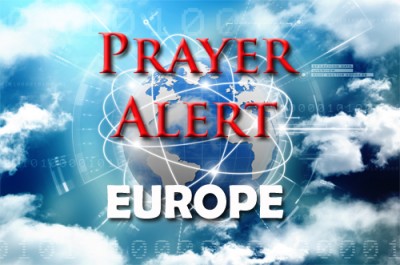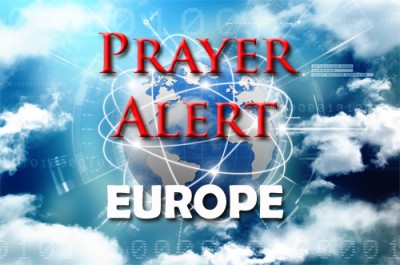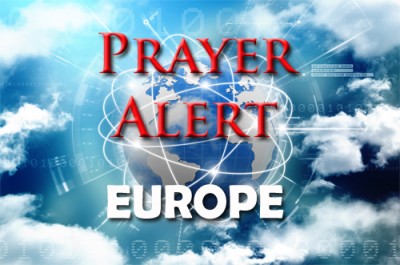Championing sexual purity in a pornographic age
05 Dec 2019We are living in an age of unprecedented sexual revolution. Very quickly we have moved from acceptance and toleration of LGBT lifestyles to an active promotion of LGBT ideology by government agencies, schools, corporations, and even churches. Similarly, pornography has gone from being an underground sexual fetish to being publicised and even praised by mainstream media. But it remains an unseen and under-discussed root of the sexual revolution, damaging lives and relationships and creating addicts who feel trapped and unable to break free. There are porn addicts in most churches, if not in every church, as well as in schools, workplaces, and communities. At a conference on 29 - 30 January 2020, Christian Concern plan to discuss the roots of the sexual revolution and hear from speakers who have broken free from sex addictions or helped others to break free. If you wish to attend, or for more information, click the ‘More’ button. See also the next article, ‘Teenage morality’.
Teenage morality
05 Dec 2019The relationships and sex education teaching in this country is lacking. The level of STDs amongst teenagers is at epidemic level, with the highest rate of infections amongst the 15-24 age group. We have the highest teenage pregnancy and abortion rates in western Europe, and a 4,500% increase in the number of children seeking gender reassignment treatment over the last few years. 80% are girls. Research published this year by YouGov states 16% of UK teenagers now identify as bisexual. In 2015 the number was 2%. Stonewall said it is great to see the increase in numbers since 2015, adding, ‘There’s still a lot to be done’. These statistics are the result of policies once designed to ‘protect’ children. Yet now, statements by the DfE and even its recently reissued FAQs show that the overriding aim is not protection, but the promotion and normalisation of LGBT behaviours and lifestyle choices.
Spain: immigrant centre attacked
05 Dec 2019On 4 December, a bomb squad in Madrid destroyed a grenade which had been thrown over the wall of a migrant centre for children. Police said it was a training grenade containing a small amount of explosives, and no injuries were reported. The centre houses dozens of unaccompanied minors, many of them immigrants. The attack has been widely condemned by Spanish politicians and human rights campaigners, with many linking it to anti-immigrant rhetoric. During a televised election debate in November, the leader of the far-right Vox party, Santiago Abascal, accused youths at the centre of causing a spike in crime in the surrounding neighbourhood, where he lives. In the election, Vox more than doubled its seats to become the country's third most-powerful party.
The new European Commission
05 Dec 2019The mandate for the 2019-2024 European Union sees the election of new MEPs to the Parliament and a change to the whole European Commission, as Ursula von der Leyen replaces Jean Claude Junker as president. Pray for God to direct the new members to be people of integrity as they step into positions of authority. Ms von der Leyen, who took office on 1 December, will focus on an ambitious climate agenda to make Europe the first climate-neutral continent by 2050, and will work closely with the European Parliament to strengthen democracy and create a fair social market economy in Europe. She also gave a very personal insight into her idea of Europe’s path amid global challenges saying, ‘We need to do it the European way’.
Ukraine: Russia 'biggest obstacle' to peace
05 Dec 2019Lithuania’s foreign minister has said that Russia represents the biggest obstacle to the peace process in Ukraine, as it represents itself misleadingly as a ‘neutral party’ in the conflict while actively participating. Ukrainian armed forces have fought Russia-backed separatists in Ukraine since 2014 and killed over 13,000 people. Moscow denies providing weapons, training and personnel to support the separatists, but independent observers, journalists and official monitors have substantial evidence to the contrary. Lithuania, with an ethnic Ukrainian population of 44,000 people, has sent military equipment to back Kyiv’s efforts in the war, and hosts 500 American soldiers to bolster NATO's eastern flank near Russia's borders.
Captivity and conflicts, seventy years on
05 Dec 2019In 1949 the UN agreed a Convention of the Suppression of the Traffic in Persons and of the Exploitation of the Prostitution of Others. Seventy years later, there are an estimated 21 million forced-labour victims worldwide. Contemporary forms of slavery include trafficking, sexual exploitation, child labour, forced marriage, and abducting children for use in armed conflict. Pray for stronger, wiser networking between governments and agencies working to eliminate slavery. Also in 1949, NATO was established as the world's most powerful defence alliance. The current ‘alliance’ has strained relations between America and France, who hold opposing views, Turkey disagrees with NATO’S plans for Baltic areas, the USA is criticising NATO countries for their alliance funding, and the UK’s Armed Forces Christian Union's director said it is unfortunate that ‘public disagreements’ have marked the anniversary of an alliance created to stand for unity. See
Global: GO 2020 outreach
05 Dec 2019Christians will soon celebrate Christmas, BUT hundreds of millions of people have not yet heard of Christ. The great revivals and mission advances throughout church history followed the pattern of prayer preceding evangelism. Now, tens of thousands of churches with hundreds of mission organisations and prayer movements are joining forces for an epic prayer and mission initiative, unlike anything the world has known, called GO 2020. The goal is to reach one billion unreached people with Christ’s Good News. By May 2020, GO 2020 aims to have mobilised 100 million Christians to pray that unreached people groups, at home and abroad, will come to know the Lord, as mission agencies preach and teach. No one organisation can accomplish such a feat, but many can flow together like tributaries into one unstoppable river. To get involved, go to
Global: small island states and COP25
05 Dec 2019The Alliance of Small Island States (AOSIS) is an intergovernmental organisation of low-lying coastal and small island countries, many of which are put at risk by climate change. As COP 25 enters its second week, AOSIS warns, ‘We are mired in a planetary emergency of existential proportion. We have breached 60% of the 15 planetary tipping-points. The impacts are real and current for people living on small islands. The entire atoll of Tuvalu is at risk of flooding from sea-level rise by 2050. Even greater segments of other small island states are at risk much earlier than previously projected. Our schools, ports, hospitals, centuries-old monuments, sacred sites, and other critical infrastructure are at risk of inundation and destruction.’







